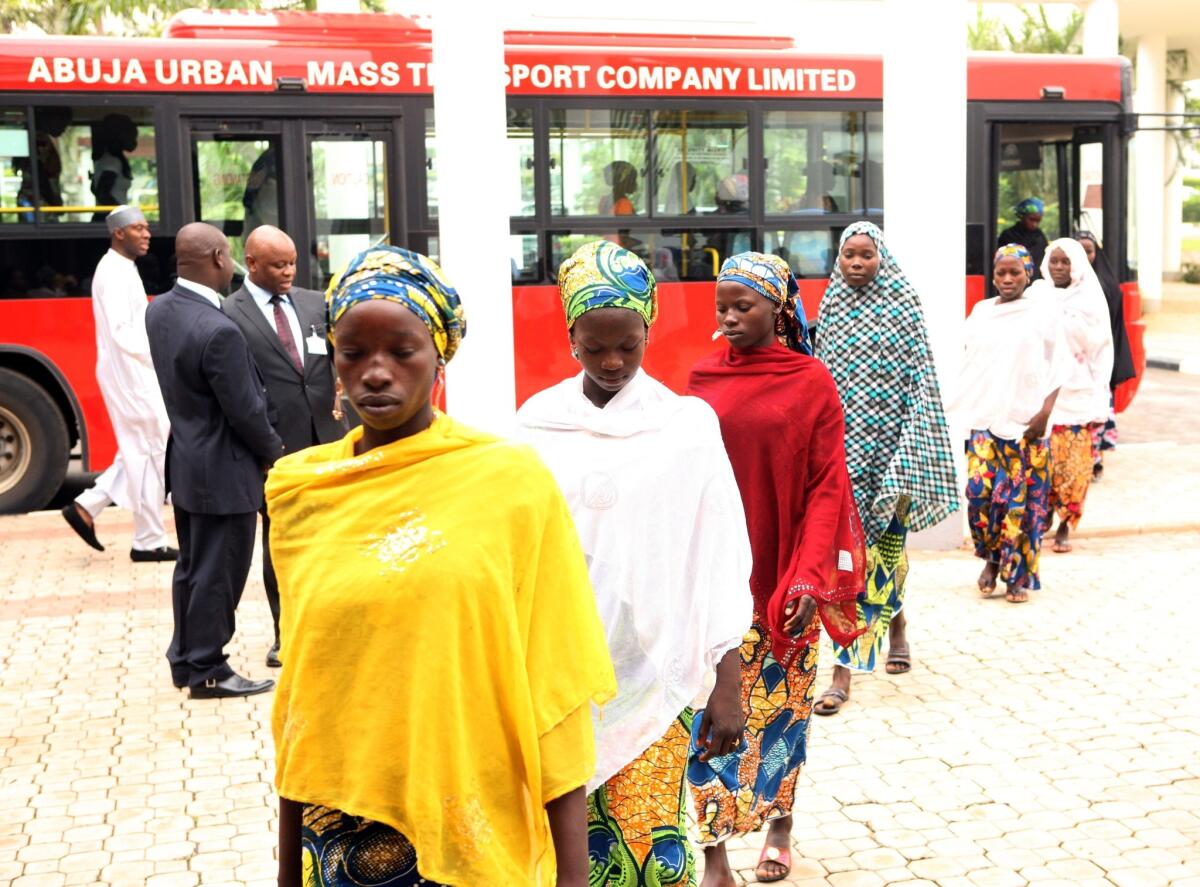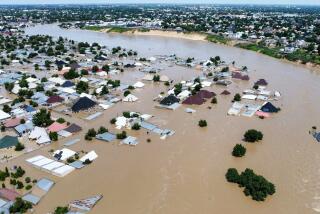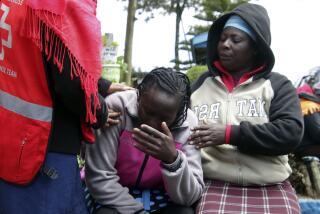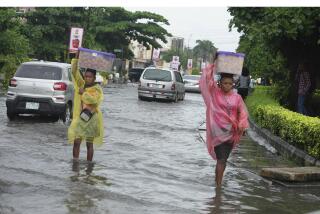Nigeria’s president meets kidnapped Chibok girls and their parents

Nigerian President Goodluck Jonathan on Tuesday met with a group of schoolgirls who escaped from the terrorist group Boko Haram and the parents of the abducted girls, about 100 days after nearly 300 girls were seized.
But there were troubling signs that Nigeria’s battle against the insurgency remains bogged down, with Boko Haram occupying the town of Damboa in recent days and raising its flag after killing dozens of people and driving nearly all the residents away.
Activists reporting that more than a dozen villages in eastern Nigeria have been conquered in recent months. Tens of thousands of people have fled in the northeast of the country, including some 15,000 people from Damboa, Agence France-Presse news service reported.
Nigerian officials report at least 100 people were killed in Damboa, south of the Borno state capital, Maiduguri. However, exact casualties weren’t known with insurgents still in control.
The fall of Damboa is seen as a major humiliation for the military, which has recently claimed an important victory: flushing insurgents out of the nearby Sambisa forest. Military spokesman Chris Olukolade told journalists Monday that the army would soon regain control of the town.
Some 219 schoolgirls kidnapped from the town of Chibok in April are still in captivity, with fears many of them have been forced to marry insurgents or convert to Islam.
Boko Haram’s leader, Abubakar Shekau, threatened to sell the girls “in the market” and referred to them as “slaves” soon after the kidnapping but has since released videos calling for a swap of jailed Boko Haram fighters in return for the girls.
Tuesday’s meeting in Abuja, the capital, between the president and Chibok residents came at the urging of Pakistani activist Malala Yousafzai, who met the Jonathan last week. The meeting was supposed to happen a week ago but was postponed by the parents, who said they needed more time to gather and organize.
At last week’s postponement, Jonathan released a press statement describing #BringBackOurGirls activists as “psychological terrorists” and accusing them of using the crisis to score political points.
Jonathan met 177 representatives from Chibok, including some of the girls who managed to escape from Boko Haram, parents of abducted girls and village leaders, the Associated Press reported.
Borno Gov. Kashim Shettima was also at the meeting. His spokesman, Reuben Abati, told journalists after the meeting that it was “a very successful event.” He said the president assured the girls that the authorities were doing everything possible to rescue the abducted teenagers.
Abati posted pictures of the meeting on his Twitter account.
The president called for patience, cooperation and understanding.
“Anyone who gives you the impression that we are aloof and that we are not doing what we are supposed to do to get the girls out is not being truthful,” Jonathan told the gathering, according to a statement from Abati.
“Our commitment is not just to get the girls out, it is also to rout Boko Haram completely from Nigeria,” he said. “But we are very, very mindful of the safety of the girls. We want to return them all alive to their parents. If they are killed in any rescue effort, then we have achieved nothing.”
He said it was not appropriate to discuss publicly what steps authorities were taking.
Nigeria’s military has ruled out an attack to free the girls because of fears many would be killed. Analysts say the only way they can be released is through negotiations with Boko Haram, although Jonathan has repeatedly ruled this out.
Eleven parents of abducted girls have died, AP reported Tuesday, seven of whom were killed by insurgents in recent attacks on another village.
Boko Haram has been attacking villages near Chibok for many months, killing hundreds.
Human Rights Watch reported recently the group that killed more than 2,000 people this year.
Follow news out of Africa on Twitter at @robyndixon.
More to Read
Sign up for Essential California
The most important California stories and recommendations in your inbox every morning.
You may occasionally receive promotional content from the Los Angeles Times.










